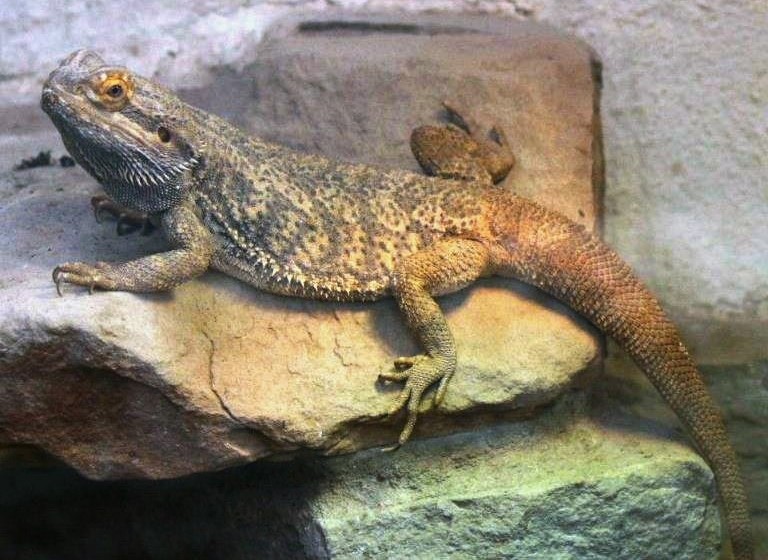Central/Inland Bearded Dragon Pogona vitticeps



There are several species of Bearded Dragon, all lizards in genus Pogona, native to various regions of
Australia. The most common, shown, is the Inland or Central Bearded Dragon.


The Inland Bearded Dragon lives in arid semi-desert habitat in Eastern and Central Australia but other bearded dragon species
live in wooded, shore and other terrain. Members of the agama family, they cannot shed their tail like some other lizards but they can run fast on two
hind legs to escape predators.



All have the ability to raise the spines under their chin (the "beard" - see top row) as a threat display (both males and females).
They also have a number of other communication mechanisms such as bobbing the head (dominance) or raising an arm
(submission). They are territorial and establish a hierarchy.



Adults can reach 2 feet long and can turn darker or lighter to regulate their temperature.



Diet is mainly insects for the young and insects with fruits/vegetation for the adults,
but can include small rodents and other small lizards.



Juveniles (above) are more strongly marked than adults. Various red and yellow colours are bred in the pet trade.


